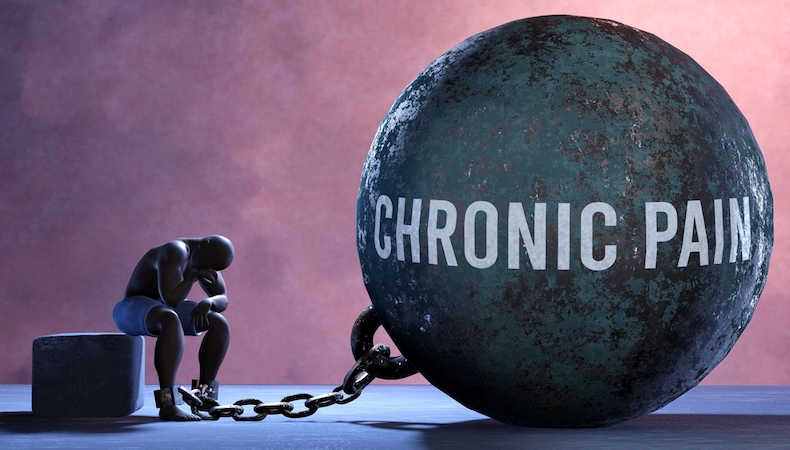How to support employees suffering from chronic pain
Most people experience physical pain at some time in their lives, but, for some, it can be debilitating and make day-to-day life difficult.
Chronic or persistent pain is that which lasts longer than three months and is now classified as either chronic primary pain or chronic secondary pain. New research has shown that chronic pain can be linked to trauma, which can lead to alterations in pain perception and regulation. As an employer, it can be helpful to bear these connections in mind so you can best support an employee.
Chronic pain affects 28 million people in the UK and can lead to absenteeism and, in some cases, a complete withdrawal from work, with a significant impact on business and the economy.
This corresponds with government data that shows a 31% increase in back and neck issues and a 22% increase in mental health conditions keeping people off work between Q2 2019 and Q2 2022.
A path to depression
Employees in pain can suffer disturbed sleep, fatigue, low mood, anxiety, stress, depression, lack of focus and side effects from medications to manage the pain, as well as having no work-life balance. In fact, research shows, although varied in their findings, that up to 85% of people with chronic pain experience depression.
Individuals suffering chronic pain often worry about what people at work think about their condition, especially if they need to take a lot of time off or are struggling to manage tasks, and this can lead to fear of losing their job. For some, the impact on their mental health can be so big that they stop work.
Five initiatives for helping employees manage their pain at work:
1. Communicate, communicate, communicate
Having a range of communication channels available for employees creates an open culture and one where employees feel empowered to speak out about their issues. Create a culture that reduces stigma where anything an employee says should be met with compassion and kindness – whether that be to a line manager or a mental health/physical first aider. Be honest and ensure the individual feels supported and listened to.
2. Adapt the individual’s role
It is important to keep people in work, as this not only helps their mental health but their physical health too. Speak with the person about what they feel comfortable doing at work and look to adapt their role to suit their needs - put plans in place to help them continue to develop their career and feel valued. Being flexible about taking time off for medical appointments and having more regular breaks will also be appreciated.
3. Training for leaders and line managers
Training leaders and line managers to understand what chronic pain is and how it can affect an individual can help reduce stigma in the workplace, as well as help employees feel more understood. It can also help you to put the right support in place.
4. Check their workstation set-up
If an employee with chronic pain is working in an office or at home their workstation should be set up to ensure their body is well supported – whether that be their desk, chair, or lighting, for example. Every condition has different needs, so be sure to check what will work best for the employee.
5. Point employees to outside support
While it is great to have a supportive working environment, you cannot do it all yourself, so point employees to support outside of your organisation, such as occupational health, cognitive behavioural therapy and NHS resources.
Supplied by REBA Associate Member, Onebright
Onebright is a personalised on-demand mental healthcare company.








